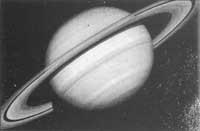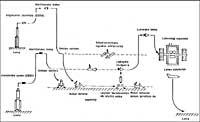Spatial mentality in the 1990s
1990/03/01 Barandiaran, Mariaje | Irazabalbeitia, Inaki - kimikaria eta zientzia-dibulgatzaileaElhuyar Fundazioa Iturria: Elhuyar aldizkaria
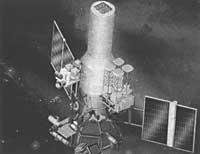
In the 1960s, special and unrepeatable environments and airs were lived around space exploration. The opening of a new and unknown world through the installation of satellites in space, first by the rivalry lit between the two great powers, put the eyes of the lesser people towards the sky. The brightest culmination of this process occurred when the Americans posed man on the Moon.
Afterwards, the atmosphere was tempering and finally became cold and far away. The news of the space focused on the scientific pages from the first pages of the newspaper. Ordinary people turned their backs on space exploration and, among other things, wondered if the funds used were not being wasted. Before, there was no limit to the money spent, nor was it thought to put. Later, few of the scientific circles defended this idea.
But, as often happens, astronautics have borne fruit in the years in which they have suffered the greatest economic problems, at least in the US: Viking and Fobos Martitz probes; Venera Venus probes covered by mists; Pioneer and Voyager, giant outer planets; Comet Vega and Giotto k Halley; space ferries; space stations; space laboratory; IRAS, etc.
The 1990s began a new era in space exploration. On the one hand, the exploration of Martitz, which has awakened in society interest and curiosity for space, will be resumed with force in order to put man on Mars.
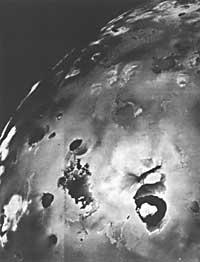
On the other hand, most of the missions will be carried out thanks to the collaboration between the different States. It is something we consider absolutely important. Apart from the mistrust and competitive climate of yesteryear, collaboration will be the key to big projects and the guarantee of viability. The costs of space exploration are excessive for a single state to assume them.
In addition, cooperation can extend not only to the space sphere, but also to other environments, helping without lips to know the different peoples of the world and to relax their tensions.
Final
These are some of the missions planned. Some of them will probably not be held on the announced date and may never be done. But by fully taking all these missions, they will answer many questions about our system and the Universe, while raising new machines. Therefore, the next decade will be very interesting.
Elhuyar. We will try to let you know Science and Technology in our magazine.
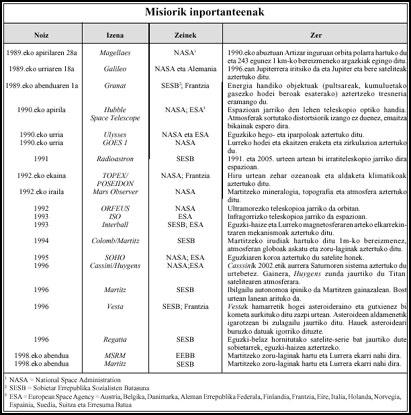

Gai honi buruzko eduki gehiago
Elhuyarrek garatutako teknologia




